
MASTER OF SCIENCE IN CLINICAL INVESTIGATION - GLOBAL HEALTH INNOVATION AND TECHNOLOGY
Overview
The Master of Science in Clinical Investigation (MSCI) is a post-graduate program that provides classroom and mentored experience in clinical research and innovation, preparing its trainees for careers in academic medicine, the allied health sciences, and global health-related fields. The program welcomes trainees who have or are pursuing graduate degrees in clinical and translational science (medicine, dentistry, nursing, physical therapy, pharmacy, and the biosciences) and trainees with engineering or business degrees who are involved in healthcare systems. The MSCI program prepares trainees to be competitive investigators and team members working broadly within the clinical and translational science realm.
Candidates for the MSCI degree elect to complete one of three tracks of study: track 1 (Med into Grad), track 2 (Clinical Scientist), or track 3 (Global Health Innovation and Technology). A total of 30 credit hours (20 didactic and 10 master-level research) are needed to meet graduation requirements. The average time to degree completion is two (2) years.
While medicine has been rapidly advancing since the Industrial Revolution in the 18th century in high-income countries such as the United States, the majority of global health problems affect the 5 billion people living in low- and middle-income countries (LMICs). Unfortunately, though many excellent LMIC experts have identified important problems in these areas and thought about potential solutions, constraints, and implementation strategies, access to programs in health innovation, technology, and entrepreneurship is limited. Furthermore, organizations and institutions around the world who aim to champion innovative solutions to global health problems need practical, highly effective, skills-based programs for their staff and partners.
To address this gap in availability of global health innovation programs that are practical in their applicability to real-world problems and accessible to LMIC experts, the University of Utah's Center for Global Surgery developed a training program based on the University of Utah's Center for Medical Innovation Bench2Bedside model - a highly productive, student-driven entrepreneurship framework. The Global Health Innovation and Technology (GHIT) track was created within the existing MSCI degree geared towards key executive players, clinicians, and staff across medicine, law, business, and engineering, both locally and abroad. Through this track, we intend to foster global health innovation capacity by creating innovation teams across professions and countries to address local priorities.
Students will:
- Learn about human-centered design as an approach to interactive systems development that aims to make complex systems usable and useful by focusing on the users, their needs, and requirements, and by applying human factors/ergonomics and usability knowledge and techniques.
- Create or participate in conceptual design and framework building in their area of interest while achieving alignment with local needs; local priorities; and medical, device, and other regulatory landscapes, and work closely with local governmental and non-governmental program leaders.
- Learn from local key leaders how to plan, execute, and evaluate an intervention given the circumstances and restraints inherent to low-resource settings.
- Acquire skills in formulating problem statements; gap analyses; identifying appropriate social, cultural, economic, and medical innovations; and formulating ideas, aims, objectives, and program plans.
- Learn about relevant ethical oversight needs and regulatory parameters.
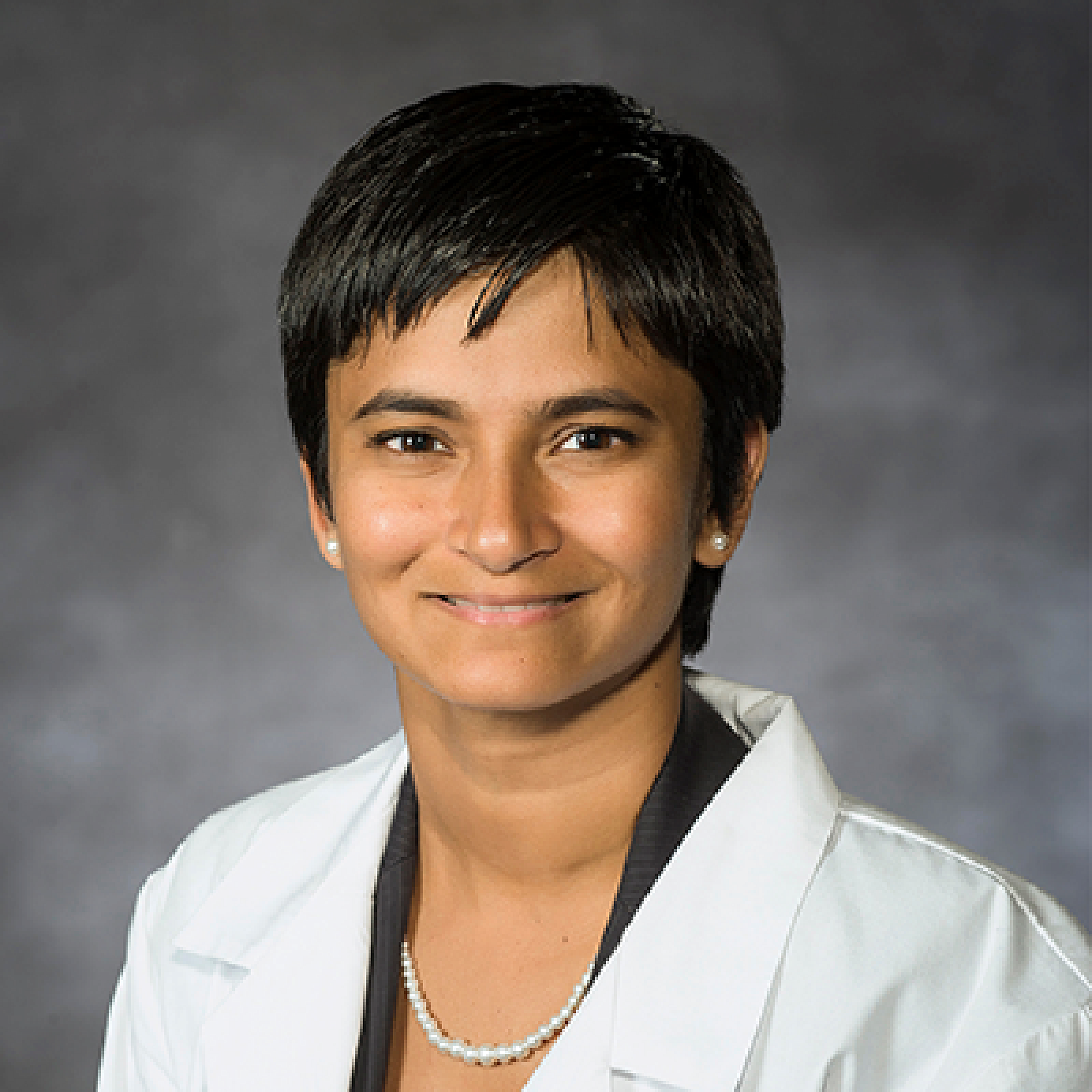
Sudha Jayaraman, MD, MSc, FACS
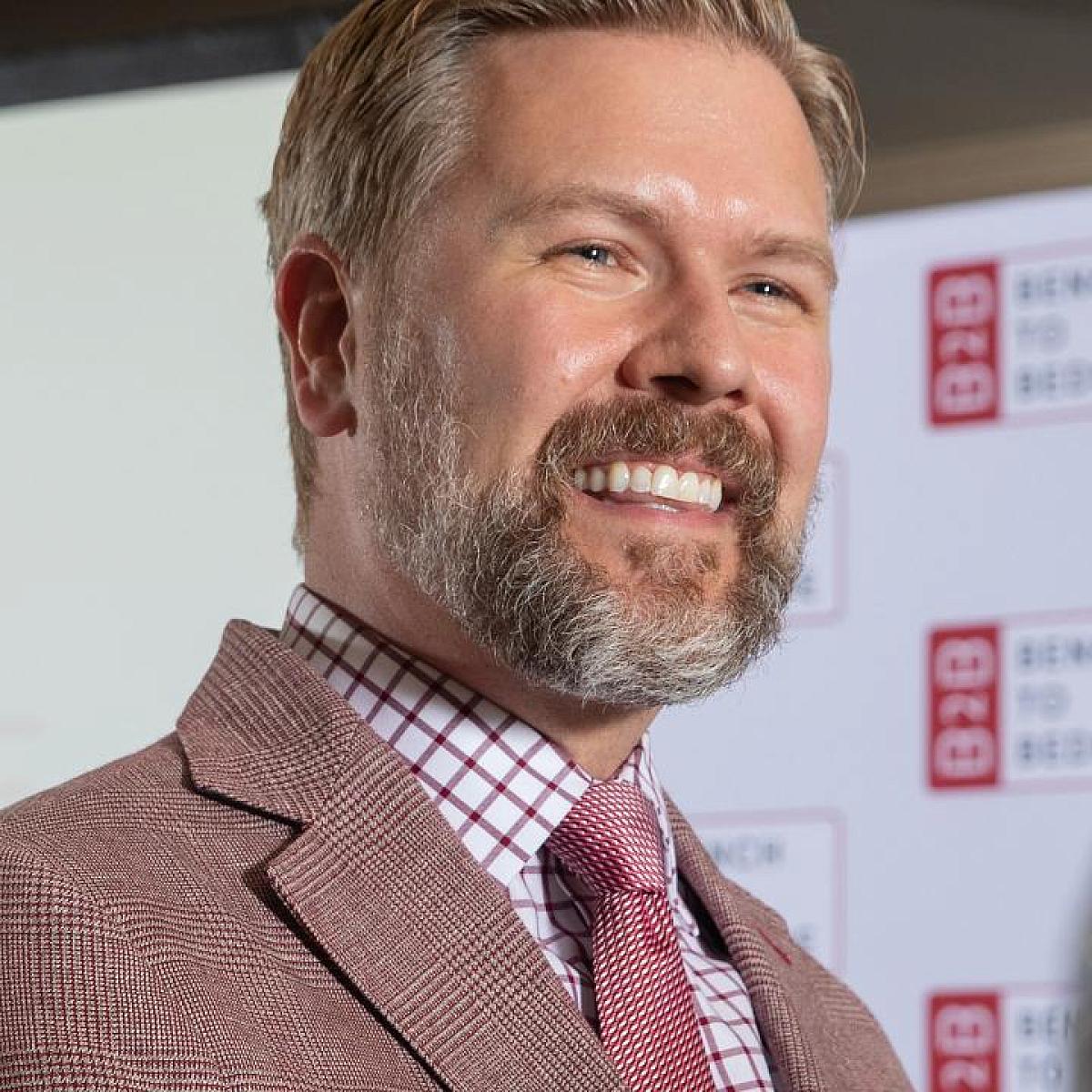
Bryan McRae, MD

Allison Judkins, MD
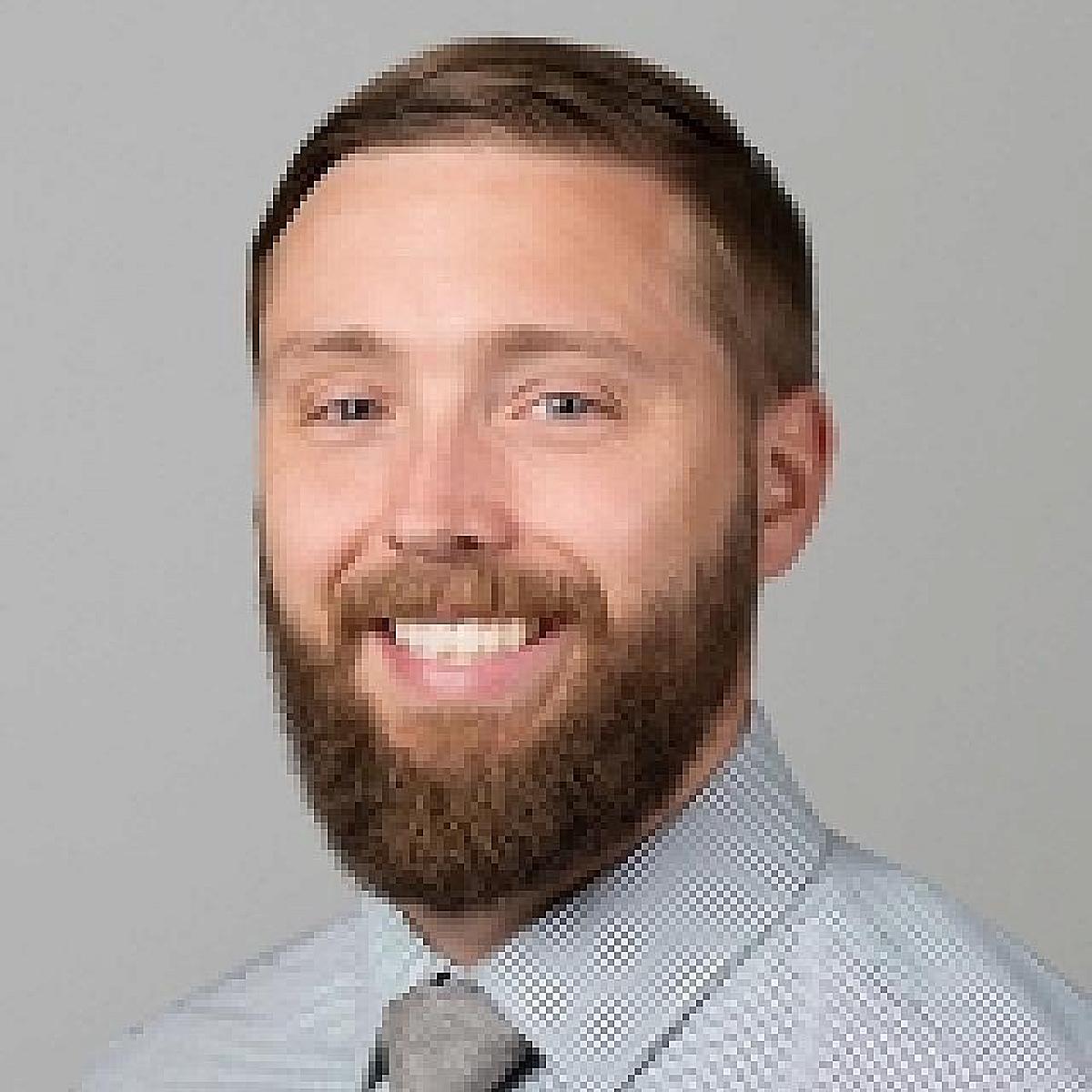
James Thomas, MD, MPH
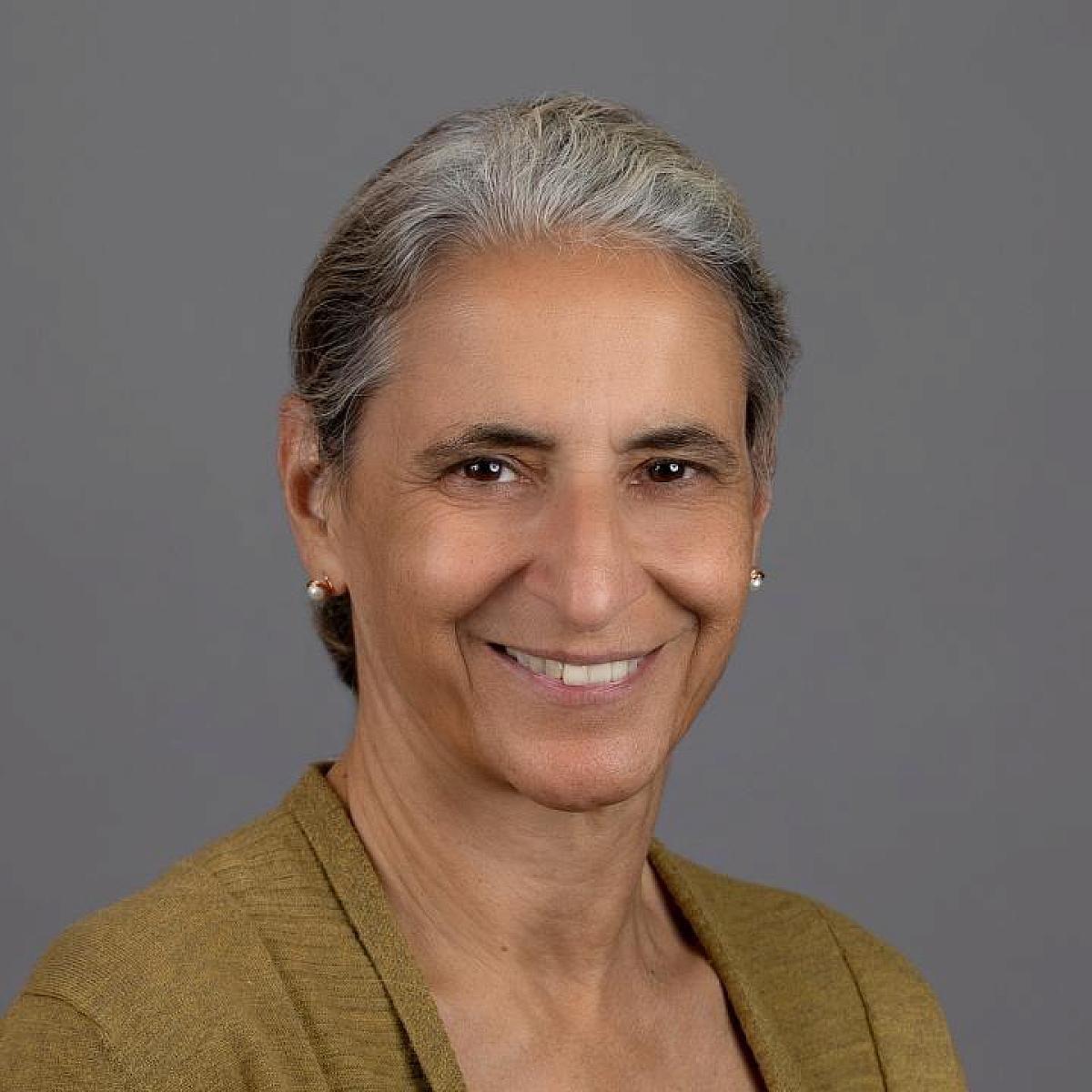
Anthea Letsou, PhD
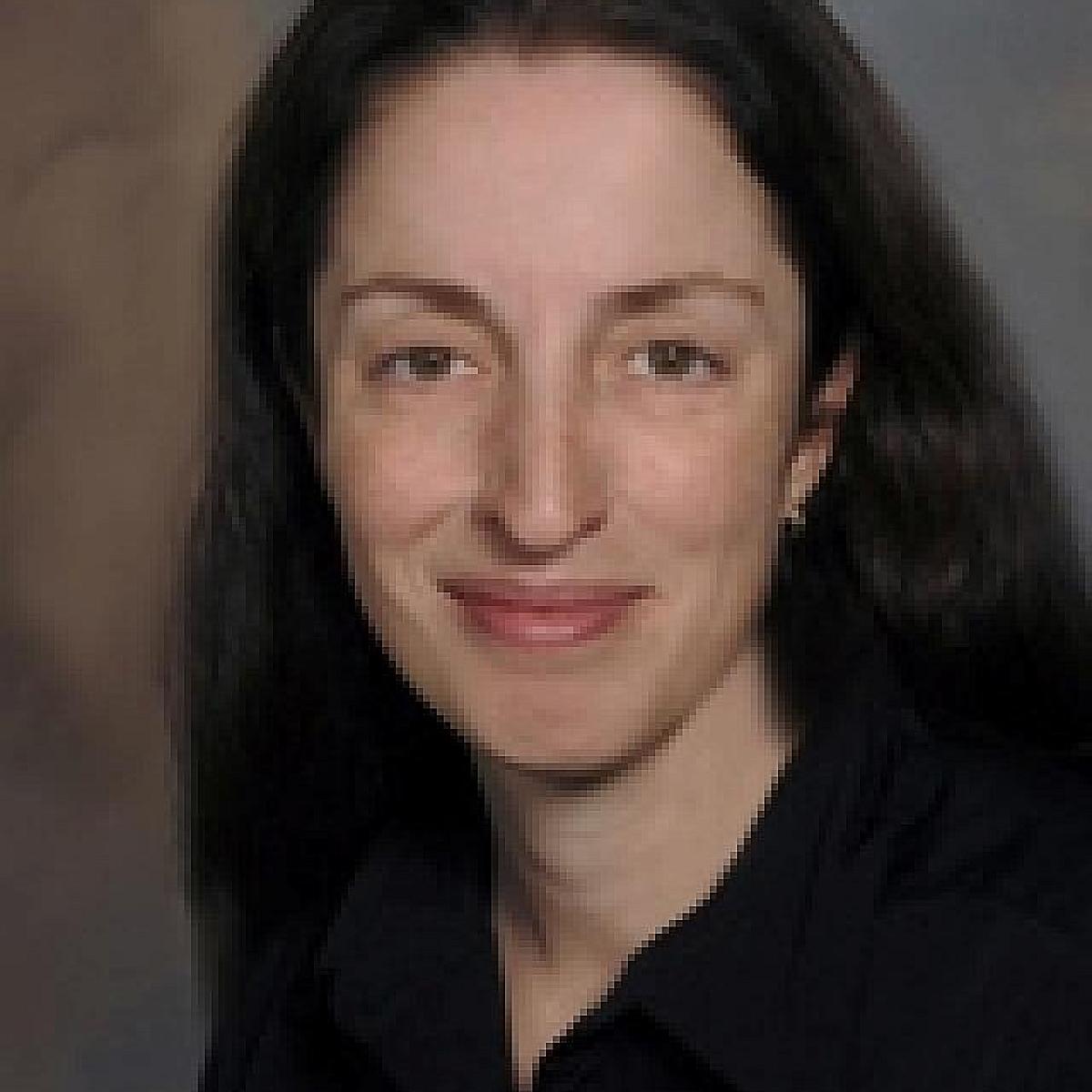
Julie Shakib, DO, MS, MPH

Anna Darelli-Anderson, MEd, BA, C-TAGME
Kellie E. Brown, MS
Dr. Carey is a physician-scientist who received her M.D. and Ph.D. degrees from Yale School of Medicine. She completed her doctoral training with John Carlson, gaining critical insights into how the olfactory system of the Anopheles gambiae mosquito detects human blood-meal hosts, a key step in the malaria transmission cycle. After a Roux fellowship at the Pasteur Institute, Dr. Carey completed her residency training in clinical pathology at Massachusetts General Hospital. She then joined Sarah Fortune's research group at the Harvard T.H. Chan School of Public Health, where she developed expertise in another globally significant pathogen, Mycobacterium tuberculosis. At the University of Utah, Dr. Carey runs a research group with a focus on mycobacterial genetics and is a pathologist at ARUP Laboratories.
Dr. Chang received her B.S. in Chemistry from the California Institute of Technology (Caltech), M.D. from the University of California San Francisco (UCSF), and M.P.H. from the Harvard School of Public Health. She completed her anesthesiology residency at Brigham and Women's Hospital in Boston. After several years of private practice in Massachusetts and Nevada, she joined the faculty at the University of Utah and is currently a Clinical Associate Professor. Dr. Chang is the Director of Non-Operating Room Anesthesia at University of Utah Hospital, Huntsman Cancer Institute, and satellite facilities, overseeing Anesthesia's clinical collaboration with radiology, gastroenterology, pulmonology, cardiology, dentistry, psychiatry, radiation oncology, reproductive endocrinology, and other specialties. She is also Co-Director of the Anesthesia Department's Quality Improvement rotation. Dr. Chang is an Instructor for the patient simulation center, teaching courses for medical students, anesthesia residents, and MOCA for board-certified anesthesiologists. Additionally, she is a leader of the Anesthesia Department's global outreach, teaching at the American International University of West Africa in The Gambia. She is particularly interested in patient safety and quality improvement initiatives.
Susanna Cohen is a doctorally-prepared board certified Nurse Midwife who joined the faculty at the University of Utah College of Nursing in 2007. She practices as a midwife in the Birth Care HealthCare (BCHC) Faculty Practice, splitting her time between the Madsen Women's Clinic and the University Medical Center in Labor and Delivery. Susanna received her Master of Science with a minor in Nursing Education from the University of California, San Francisco, and completed her clinical training at San Francisco General Hospital and University of California San Diego Medical Center. She also holds a B.S. in Community and Regional Development from the University of California, Davis, where she received the Mary Regan Meyer Prize, a University-wide award for Academic Excellence and Community Service. Susanna completed her Doctorate in Nursing Practice at the University of Utah, where her scholarly work centered around sustainable simulation and team training in low-resource settings internationally. Susanna is a founding member of PRONTO International, an NGO which provides interprofessional obstetric and neonatal simulation training in Kenya, Guatemala, India, and throughout Mexico. Before coming to Utah, Susanna trained in Mexico in Mayan midwifery and herbal medicine, and currently uses the Rebozo technique she learned there to offer pain relief during labor and to encourage babies to get into the optimal position for birth. In 2018, Susanna was inducted as a Fellow in the American Academy of Nursing (FAAN), the highest honor in academic nursing. Susanna believes in an integrated and holistic approach to Women's health and encourages women to play an active role in their care.
Dr. Dickerson is a Clinical Professor of Pediatrics and Adjunct Assistant Professor of Public Health at the University of Utah School of Medicine, where he also serves as the Assistant Dean of Global Health Education. He practices as a pediatric hospitalist at Primary Children's Hospital in Salt Lake City, Utah where he combines the clinical care of hospitalized children with the education of medical students and resident physicians. Dr. Dickerson's interests include community-based maternal and child health in resource-poor settings. He has authored or co-authored 15 peer-reviewed research articles and many abstracts related to global maternal and child health and has worked as a program manager to develop and implement a community-based maternal and newborn health outreach program in rural Tibet. In addition to teaching clinical medicine, Dr. Dickerson directs the Graduate Certificate in Global Medicine, co-directs the Ghana Global Health Learning Abroad Program, and lectures frequently on clinical pediatrics and global health in a variety of settings.
Dr. Lamb has over 10 years of experience using mouse models of malaria and her lab is now undertaking parallel research into human malaria in collaboration with researchers in Nigeria and the Cameroon. She has a broad background in the field of immunoparasitology, and has generated a body of work spanning several different mouse models of parasitic infection. The influence of co-infecting pathogens on the immunobiology of malaria infection is one of her long-standing research interests. As a postdoctoral Career Development Fellow at the National Institute of Medical Research in London, United Kingdom, she specialized in malaria immunology using the Plasmodium chabaudi mouse model to examine how the inflammatory immune response is regulated. She is now continuing with this line of research, focusing on the CD4+ T helper cells that orchestrate the immune response in malaria infection. Currently, the aim of her research is to determine how the inflammatory immune response is activated and regulated during malaria infection. Specifically, she investigates how CD4+ T cells become activated and traffic to the organs of the body where malaria parasites sequester. The long-term goal of her research is to generate knowledge on the basic immunobiology of malaria infections that can be fed into the development of rationally designed therapeutic strategies for malaria. The systems biology approaches used by MAHPIC will elucidate the key features of protective and pathogenic immune responses that arise in malaria infection.
Amanda LeMatty is a first-year biomedical engineering PhD student from Charleston, South Carolina. Her research focus is global health innovation, which is what led her to the University of Utah and the Center for Medical Innovation. Over the course of her PhD, she will be working to develop a non-invasive hemoglobin monitor to reduce the global burden of anemia.
Dr. Leung is a tenured Associate Professor in the Division of Infectious Diseases, and the Dr. Thomas D. Rees and Natalie B. Reese Presidential Endowed Chair in Global Medicine. He received his M.D. from Wake Forest University School of Medicine, completed a residency in Internal Medicine at the University of Washington in Seattle, and a fellowship in Infectious Diseases at Beth Israel Deaconess Medical Center/Harvard Medical School in Boston. Dr. Leung also has clinical experience in several international settings. Before joining the University of Utah in 2014, Dr. Leung was an Instructor of Medicine at Harvard Medical School. Dr. Leung is board certified in Infectious Diseases and sees patients on the Infectious Diseases consult service at the University of Utah Hospital and in the International Travel Clinic. He has a Certificate in Travel Health from the International Society of Travel Medicine, and is the Utah Site Director of the CDC-sponsored Global TravEpiNet and GeoSentinel surveillance networks for travel-related illnesses. His research focuses on the immunology, epidemiology, and clinical management of diarrheal diseases such as cholera, as well as investigations of gut dysfunction in returning travelers. He has published over 100 peer-reviewed research articles and is funded by grants from the National Institutes of Health and the Bill and Melinda Gates Foundation.
Dr. Ng's previous research was focused on the development of analytical technologies for biomedical research and global health. He completed his Ph.D. with Aaron Wheeler at the University of Toronto in 2015, during which he developed two major techniques. The first is a new approach to study rapid phosphorylation signaling at the single-cell level. The second is a miniaturized method for magnetic particle-based immunoassays, which began with a proof-of-concept, and matured into a diagnostic evaluation with clinical samples. He spent another year as a postdoc in the Wheeler lab making the immunoassays more field-deployable. In collaboration with the Centers for Disease Control and Prevention (CDC), he led a team to test this technology in Kakuma, a refugee camp in a remote part of Kenya. Since July 2016, he has been a postdoc with James Health at Caltech (July 2016-March 2018) and at the Institute for Systems Biology (April 2018-present), develop micro devices for cancer immunotherapy applications.
Recognized as an international leader and pioneer in expanding the role of surgery in public health, Dr. Price's work highlights the dramatic impact surgery can have on communities, economics, and individuals. He co-founded and serves as Vice Chair of Global Affairs at the Center for Global Surgery at the University of Utah, and directs graduate surgical education at Intermountain Medical Center, Intermountain Healthcare. He received is B.S. from the University of Utah, M.D. from Harvard Medical School, and completed his surgical residency at Brigham and Women's Hospital. Dr. Price is a Clinical Professor of Surgery at the University of Utah and has participated in or led medical and surgical expeditions to Asia, Latin America, and Africa. He has authored numerous per-reviewed articles, book chapters, and books. Dr. Price has served in many leadership positions with the WHO Global Initiative for Emergency and Essential Surgical Care, the Society of American Gastrointestinal and Endoscopic Surgeons (SAGES), the American College of Surgeons (ACS), and the International Surgical Society (ISS). Honors received include: Utah Medical Association 2017 Physician of the Year, Mongolian Presidential Friendship Medal, American College of Surgeons-Pfizer International Volunteerism Award, Medal of Honor from the Minister of Health of Mongolia, and multiple teaching awards.
Spencer Walker was educated as a Medical Device Development specialist (M.Sc.) at Cranfield University (England, United Kingdom) and has over 20 years of experience in the medical industry, including 10 years as a Regulatory Affairs and Quality Executive and Consultant/Advisor in the area of Medical Device Regulatory/Quality Compliance. He joined the University of Utah's Center for Medical Innovation in 2015 as the Director of Regulatory Affairs, where he currently teaches and consults for new university-/industry-based medical device start-ups.
Dr. Watt has expertise in the development and evaluation of behavioral interventions, and the application of rigorous qualitative methods. She has a multi-disciplinary research program that applies social and behavioral research methods to understand and improve health outcomes globally. Dr. Watt leads the MAMA Study in Moshi, Tanzania, which is addressing HIV stigma in the intrapartum period. She collaborates on global research projects with School of Medicine faculty in the departments of Surgery, Medicine, and Obstetrics and Gynecology. Dr. Watt has a teaching appointment in the University of Utah Honors, where she teaches undergraduate courses and directs the Honors Integrated Minor in Health. She co-leads the Health Equity Research Core at the Women and Child Institute, and serves as the Director of Equity, Diversity and Inclusion in the Department of Population Health Sciences.
Program Curriculum
Emphasis Courses
Global Health Innovation
Fall semester, Hybrid (Mon/Wed, 2:00 p.m. - 5:00 p.m.)
Note: This course is offered through the Graduate School as MDCRC 6170 and the School of Medicine as MDID 6170
Course Description
The gap between the health and well-being of underserved populations, both within and between country borders, continues to widen, and the need for strong leadership in healthcare innovation to address this gap has never been greater. This course utilizes an interdisciplinary perspective to examine the major global health problems facing the international community today. Together, we will analyze challenges in healthcare delivery using an innovation-focused lens. An understanding of complex multidisciplinary interaction of various approaches influencing health outcomes will be key in developing successful strategies for improving healthcare outcomes in low- and middle-income countries (LMICs).
This course introduces students to key healthcare concepts and topics, including an overview of global health, innovation in low-resource environments, infectious disease, pediatric/cancer/reconstructive/trauma surgical care in low-resource settings, maternal and neonatal health, entrepreneurial colonialism, and the use of culturally competent needs assessments as tools for developing high-impact innovative solutions. Multidisciplinary guest presenters and content experts from across the University campus and from partner institutions locally and internationally will provide opportunities for students to engage with expert advisors.
Course Outcomes
Upon completion of this course, students will be able to:
- Understand, analyze, and evaluate challenges associated with healthcare innovation in LMICs.
- Describe current global causes of morbidity and mortality and the metrics used for measuring health outcomes, as well as the major determinants that influence health outcomes in LMICs, including regional political, environmental, social, and economic factors.
- Develop an understanding of key concepts and tools essential for the field of global health and the state of the evidence that guides implementation science in developing countries.
- Examine the culture and language of "global health" in the United States and develop an understanding of cultural competency and how this impacts healthcare delivery, both in the United States and internationally.
- Understand that global health intervention and innovation requires a multidisciplinary framework of health science, social-behavioral science, humanities, and policy.
Global Health Innovation: Systems and Processes
Fall semester, Hybrid (Tues/Thurs, 2:00 p.m. - 5:00 p.m.)
Note: This course is offered through the Graduate School as MDCRC 6180 and the School of Medicine as MDID 6180
Course Description
The gap between the health and well-being of underserved populations, both within and between country borders, continues to widen, and the need for strong leadership in healthcare innovation to address this gap has never been greater. This course utilizes an interdisciplinary perspective to analyze how healthcare systems operate, with specific focus on areas within the complex infrastructure that are prone to breakdown. Together, we will examine the role of innovation in addressing these issues through understanding the methods for identifying gaps and improvement opportunities within healthcare processes. Priorities in global health policy and healthcare economics in low-resource countries will be reviewed, with a focus on their relationships to healthcare innovation and successful program implementation.
This course provides an introduction to global health systems and innovation project concepts and includes topics such as quality improvement (QI), root cause analysis, qualitative methods in QI, engineering concepts for low-resource health innovations, regulatory affairs (U.S. FDA and global), global health systems, venture/entrepreneurial financing, international healthcare finance, philanthropic and research grants in global settings, and global innovation partnerships. Multidisciplinary guest presenters and content experts from across the University campus and from partner institutions locally and internationally will provide opportunities for students to engage with expert advisors.
Course Outcomes
Upon completion of this course, students will be able to:
- Understand, analyze, and evaluate how healthcare systems operate in LMICs, and where breakdown often occurs.
- Understand tools and methods to analyze healthcare processes, identify gaps and improvement opportunities (leverage points), and application of core quality metrics in health systems improvement processes.
- Understand the connection between quality of care, cost, and clinical outcomes.
- Understand health economics and the role of innovation in value-based healthcare in low-resource settings.
- Understand global health policy and alignment for innovation in healthcare.
- Understand the business development, financial planning, market identification, and funding mechanisms for global innovation.
Clinical Problem-Solving for Medical Technology Innovations
Fall semester, Asynchronous
Note: This course is offered through the Graduate School as MDCRC 6190
Course Description
Clinical Problem-Solving for Medical Technology Innovations introduces students to a structured method for developing high-impact, innovative, disruptive medical devices and technologies with potential for successful commercialization and translation into real-world clinical practice. The foundation of this method is the structure described in the Stanford Biodesign system (Yack et al.). Students will learn to approach real-world clinical problems from a multidisciplinary global perspective, and then to identify diagnostic and therapeutic deficiencies that can be addressed through the process of innovating medical technologies. Students will also learn to incorporate end-user feedback, U.S. FDA regulatory assessment, intellectual property (IP) assessment, and business commercialization perspectives in the initial development of new technologies. This course will provide the academic foundation for mastery of a structured problem-solving process from clinical needs finding to needs analysis.
Course Outcomes
Upon completion of this course, students will be able to:
- Demonstrate an understanding of the development of high-impact, innovative, and disruptive medical devices and technologies.
- Acquire skills to approach real-world clinical problems from a global perspective, considering diverse healthcare contexts and patient populations.
- Cultivate critical thinking and analytical abilities necessary for evaluating complex clinical problems and proposing effective solutions, including identifying diagnostic and therapeutic deficiencies within clinical problems and recognizing opportunities for addressing these gaps through the innovation of medical technologies.
- Foster an interdisciplinary approach to clinical problem-solving by integrating perspectives from diverse fields such as medicine, engineering, IP, U.S. FDA regulatory affairs, and business.
Medical Device Innovation
Spring semester, In-person (Mon/Wed/Thurs, 9:00 a.m. - 5:00 p.m. for two weeks in January only)
Note: This course is offered through the Graduate School as MDCRC 6175
Course Description
This course continues the principles of medical technology innovation and design with a focus on practical skills for prototyping and medical device design.
Medical Device Innovation includes in-person training on prototyping lab equipment at the University of Utah Center for Medical Innovation (CMI), including 3D design software (SolidWorks, Fusion, etc.), 3D printing, 3D scanning, and the laser cutter. Principles of U.S. FDA Regulatory Affairs and USPTO patent and intellectual property (IP) development further augment the prototype development training. During in-class strategy sessions, students serve as ad hoc consultants for their own projects and for other teams' projects, focusing on concept and prototype development and on discussions relative to Regulatory Affairs, Intellectual Property, Clinical Research, and Medical Reimbursement. Students will learn to approach real-world clinical problems by identifying diagnostic and therapeutic deficiencies that can be addressed through the process of innovating medical technologies.
Course Outcomes
Upon completion of this course, students will be able to:
- Identify and utilize the processes of medical technology innovation and design, focusing on initial prototyping skills (3D design software, 3D printing, 3D scanning, laser cutting equipment, etc.)
- Understand the principles relevant to medical device development in the context of U.S. FDA Regulatory Affairs and of IP standards, and their practical applications to enhance the development and growth of successful new medical devices.
- Gain practical knowledge and skills relevant to 3D prototyping design and equipment use.
- Gain practical training on rapid low-cost initial prototype development as it relates to low-resource settings and the global health context.
Introduction to U.S. Clinical Medicine
Spring semester, Hybrid (Tues)
Note: This course is offered through the Graduate School as MDCRC 6185
Course Description
This course includes an introduction to the foundations of U.S. clinical medicine such as clinic/operating room/hospital system standards, clinical training pathways, clinical medical departments, and other healthcare systems. In-person tours and clinical observations introduce students to the U.S. healthcare environment. For students already familiar with U.S. clinical medicine, observations and introductions focus on the medical technology and engineering industry in the United States, including exposure to university and local industry medical technology firms, factories, and facilities. Students will gain familiarity with medical and hospital systems, and will learn to understand clinical decision-making, clinical mindsets, and U.S. medical reimbursement systems; additionally, in preparation for, and prior to, the University of Utah's Bench to Bedside (B2B) medical technology student competition, students will also have two (2) full days of in-person class work to finalize their projects.
Course Outcomes
Upon completion of this course, students will be able to:
- Understand the basics of U.S. clinical medicine, including clinical training pathways and clinical, surgical, and hospital system standards, as well as critically analyze and evaluate U.S. medical and hospital systems, including their strengths, weaknesses, and opportunities for improvement.
- Understand the clinical mindsets prevalent in U.S. healthcare and analyze and interpret clinical decision-making processes.
- Develop a comprehensive understanding of the medical technology and engineering industry in the United States.
- Recognize the intricacies of U.S. medical reimbursement systems and their impact on clinical practice and healthcare delivery.
- Foster an interdisciplinary perspective by integrating principles from medical technology, engineering, and clinical medicine and apply the learned knowledge and skills to engage in discussions and contribute to the advancement of clinical medicine and the medical technology industry.
Entrepreneurship for Medical Technology Innovations
Spring semester, In-person (Mon/Wed/Thurs, 9:00 a.m. - 5:00 p.m. for two weeks in April only)
Note: This course is offered through the Graduate School as MDCRC 6195 and the School of Medicine as MDID 6195
Course Description
This course continues the principles of medical technology innovation and design taught in MDCRC 6175: Medical Device Innovation with a focus on entrepreneurship and business development within the biotechnology and medical technology industries. The seminar includes in-person training (including clinical observations in both surgical and clinical settings, which provide a very unique and critical learning opportunity as students observe and interact with patients, physicians, and other healthcare providers in the settings where technologies are used and care is delivered) and guest lecture presentations on topics relevant to the University of Utah's Bench to Bedside (B2B) medical technology student competition, which is held each April and is hosted by the University's Center for Medicine Innovation. The B2B competition occurs during this course, providing a showcase for new and emerging technologies and medical technology startups from student-led teams. Additional topics related to business development and strategy include U.S. healthcare economics; international healthcare finance; medical reimbursement strategy; sustainable business models in global settings; understanding customer needs, market needs, and market selection; competitive landscape analysis; strategic partnerships; business model canvas; corporate entities/tax structure; capital acquisition; and pitch video production. Brief reviews of topics covered in MDCRC 6190: Clinical Problem-Solving for Medical Technology Innovations (e.g., U.S. FDA regulatory affairs, intellectual property, etc.) as they relate to entrepreneurial strategy are included.
During in-class strategy sessions, students serve as ad hoc consultants for their own projects and for other teams' projects, focusing on concept and prototype development and on discussions relative to the above-noted entrepreneurial topics. Students will learn to approach real-world clinical problems by identifying diagnostic and therapeutic deficiencies that can be addressed through the process of innovating medical technologies. The text-based lecture series will be complemented with interactive lectures that provide real-world examples of the medical innovation process given by guest lecturers who have successfully navigated the strategic biodesign process and impacted healthcare through innovative technologies.
Course Outcomes
Upon completion of this course, students will be able to:
- Identify and utilize the processes of medical technology innovation and design, focusing on the intersection of entrepreneurship and business development.
- Understand the principles of entrepreneurship (such as the importance of conducting needs assessments and contextual analyses, evaluating the potential for strategic partnerships, and utilizing business models) and their application to enhance the development and growth of medical technology ventures.
- Gain practical knowledge and skills relevant to entrepreneurship and business development, especially as they relate to low-resource settings and the global health context.
Mentored Clinical Research Project
The MSCI-GHIT program places a strong emphasis on fostering innovative approaches to clinical investigation, building upon a solid foundation in research methods. The mentored clinical research project, or capstone, serves as a demonstration of the applied skills and competencies acquired throughout the program's core and emphasis coursework. With a focus on innovation, the capstone should reflect approximately 450 hours (10 credit hours) of research work, adhering to the University of Utah's credit hour guidelines. Capstone projects should provide sufficient documentation for a Utility (Non-Provisional) Patent application, US FDA 510(k) regulatory application, or equivalent impactful work.
Application/Registration Information
1. CONTACT US
Send an email to anna.darelli-anderson@utah.edu and kellie.e.brown@hsc.utah.edu to let us know who you are and that you will be applying.
2. ARRANGE FOR TRANSCRIPTS
Have your transcripts sent to the University Admissions Office. Do this early as a delay in receiving transcripts will impede the University admissions process. Official transcripts should be mailed to:
University of Utah Admissions Office
201 South 1460 East Room 250S
Salt Lake City, UT 84112-9057
3. COMPLETE THE ONLINE APPLICATION
Complete the University of University Graduate School Application. Under "Program of Interest" on the program information page, select Clinical Investigation MS as your intended graduate program. Under "Area of Interest," select Global Health Innovation and Technology (Track 3) as your intended degree.
As part of your application, you must submit/upload (as a .doc or .pdf):
- Curriculum Vitae (CV)
- (Unofficial) academic transcripts from all prior institutions
- Personal Statement (one page, Arial 11-point font) - highlight your academic preparation and interests, career goals, and motivation to complete the program of study
- Research Statement (one page, Arial 11-point font) - provide a statement of your research accomplishments to date
- Letters of Support* - provide the names and contact information for two professors/faculty mentors who are familiar with your research and/or academic success
* Note: For clinical faculty and fellows, an additional statement of protected time must be reviewed and submitted by your Division Chief.
Additional Steps Required for International Graduate Student Applicants:
1. APPLY FOR I-20 CERTIFICATE OF ELIGIBILITY
After completion of the online graduate student application, international students must then apply for an I-20 Certificate of Eligibility. An I-20 is required to apply for an F-1 student visa through a U.S. Consulate abroad or to maintain F-1 student status in the United States. The University of Utah begins processing I-20 Certificates of Eligibility for students as soon as they have been admitted, so make sure to complete this step as soon as possible. For more information on how to apply for an I-20 Certificate of Eligibility, please visit https://admissions.utah.edu/i-20-information/.
2. APPLY FOR F-1 STUDENT VISA
Upon receiving your I-20, you can then apply for a F-1 student visa. To apply for an F-1 student visa, you must complete the online visa application, pay the nonrefundable application fee, and schedule a visa interview at a U.S. Embassy or Consulate (excluding citizens of Canda and Bermuda).
- Complete the online visa application
- You will be required to upload a photo to complete the application. Once complete, print the application form confirmation page to bring to your visa interview.
- Pay the nonrefundable application student & exchange visitor information system (SEVIS) I-901 fee
- NOTE: Only students with a new SEVIS number are required to pay the fee. Print the receipt as proof of payment for your visa interview.
- Schedule visa interview
- You will be required to bring the following documents to the interview:
- Passport
- Nonimmigrant Visa Application (Form DA-160)
- Application Fee payment receipt
- I-20 Certificate of Eligibility
- Additional documents as required
- NOTE: Review instructions on the website of the Embassy or Consulate where you will apply for specific details.
- You will be required to bring the following documents to the interview:
3. REGISTER FOR INTERNATIONAL STUDENT ORIENTATION
All international students (with F-1 or J-1 student visas) are required to attend International Student Orientation during their first semester at the University of Utah. Additionally, students who have not been enrolled at the University for three (3) consecutive semesters or more must attend this orientation again. For more information, visit the International Student and Scholar Services (ISSS) website.
- Spring 2024 Registration Opens: Thursday, November 2, 2023
- Spring 2024 Semester Begins: Monday, January 8, 2024
- Spring 2024 Semester Ends: Tuesday, April 23, 2024
- Summer 2024 Registration Opens: Monday, March 11, 2024
- Summer 2024 Semester Begins: Monday, May 13, 2024
- Summer 2024 Semester Ends: Wednesday, July 31, 2024
- Fall 2024 Application Deadline: Sunday, June 30, 2024
- NOTE: International applicants should submit their applications one month prior to the application deadline above.
- Fall 2024 Registration Opens: Monday, April 1, 2024
- Fall 2024 Semester Begins: Monday, August 19, 2024
- Fall 2024 Semester Ends: Friday, December 13, 2024
Students
Laura Fernandez is a medical doctor who graduated from Universidad El Bosque in Bogota, Colombia. Her area of interest lies in neuroscience, neurosurgery, and traumatic brain injury across the globe, including designing and developing new technologies for multiple neurosurgical pathologies to improve healthcare standards worldwide - especially ensuring equity in low- and middle-income countries. She won the Best in Business Award at the 2022-2023 Utah State Bench to Bedside (B2B) Competition for the Excranio device.
Theodomir Sebazungu is an Obstetrician Gynecologist at Butaro Hospital in Rwanda. Dr. Sebazungu graduated from the University of Rwanda College of Medicine and Health Sciences with a Master of Medicine in Obstetrics and Gynecology and completed a Master's in Global Health Equity. His interests are in addressing access to cervical cancer care and he has a grant from Huntsman Cancer Institute to implement a pilot cervical cancer testing program at Butaro Hospital along with his collaborator, Dr. Kate Harris.
Patrick Eucalitto is an Obstetrician Gynecologist who graduated from the College of Medicine at SUNY Downstate in Brooklyn, NY and completed his residency at Northwestern University in Chicago, IL. He is the inaugural Women's Health Equity Fellow at the University of Utah, through which he practices in the Navajo Nation in Arizona and the University Teaching Hospital in Kigali, Rwanda. Dr. Eucalitto's interests include rapid diagnostics in low-resource settings, specifically perinatal Group B streptococcal infection, and rural disparities in women's health outcomes. He won the Eccles & Marriot Libraries Award at the 2022-2023 Utah State Bench to Bedside (B2B) Competition for Nala Diagnostics.
Brandon Tomlin is a biomedical engineer and neonatologist who graduated from the Medical College of Wisconsin and completed his residency in Pediatrics at the University of Wisconsin, Madison. He is currently a third-year Neonatology Fellow at the University of Utah and his research focus is on medical device development for global health applications, specifically the development of a low-cost infant radiant warmer for use in Kathmandu, Nepal. He has also helped develop the medical device regulatory pathways for the government of Nepal.
Adolphe Byambu Karegeya is an Obstetrician Gynecologist at Kacyiru Hospital in Rwanda who graduated from the University of Rwanda College of Medicine and Health Sciences with a Master of Medicine in Obstetrics and Gynecology. He is a Clinical Lecturer at the University of Rwanda and Women's Health Equity Fellow at the University of Utah. Dr. Karegeya's work focuses on advancing women's sexual and reproductive health and rights in limited-resource settings and within underserved communities through clinical practice, research, and leadership.
Daisy Ruto is a Kenyan Obstetrician Gynecologist with over two decades of combined experience in clinical practice, research, and program implementation across public, private, and NGO sectors. She is currently employed with Jhpiego-Kenya and leads the Obstetric Safe Surgery, Obstetric Fistula, and Postpartum Hemorrhage Impact programs in Kenya. Dr. Ruto has served as a technical lead in Maternal and Newborn Health, cervical cancer, and family planning. Since 2018, she has focused on safe surgery and innovation.
Mary Muthengi is a trained graduate nurse and midwife working as a Technical Officer for Jhpiego-Kenya. She played an integral role in the implementation of the Obstetric Safe Surgery and Proximie Technology (a digital platform for virtual scrub-in in operating theatres) programs, providing critical technical guidance. Ms. Muthengi is currently overseeing the implementation of Obstetric Fistula and AMPLI-PPHI (Accelerating Measurable Progress and Leveraging Investments for Postpartum Hemorrhage Impact) projects in Makueni, Kenya.
Leif Manuel Sorensen is currently an undergraduate student at the University of Utah and an Education and Training Scholar at the University of Utah's Center for Global Surgery. With hopes to attend medical school in 2025, his professional interests revolve around global health equity and surgery. At the Center for Global Surgery, Leif's focus has been on the development of a laparoscopic surgery training program in Cambodia. Fluent in Mongolian, he is also engaged in projects related to advanced trauma life support, liver transplantation, and breast cancer in Mongolia.
Questions?

Anna Darelli-Anderson, MEd, BA, C-TAGME
University of Utah
Department of Surgery
30 N. Mario Capecchi Dr. 4N153
Salt Lake City, UT 84112
801-581-6345
anna.darelli-anderson@utah.edu